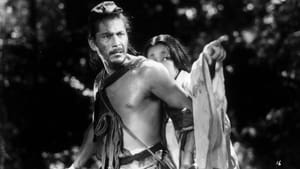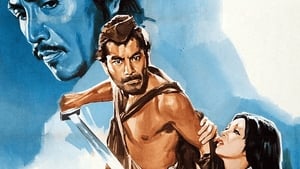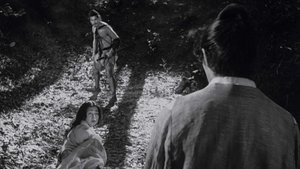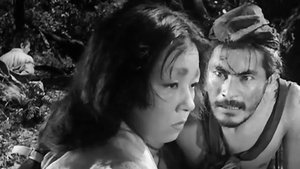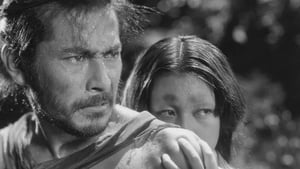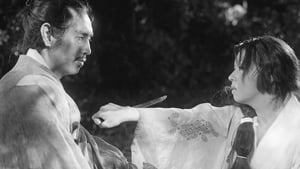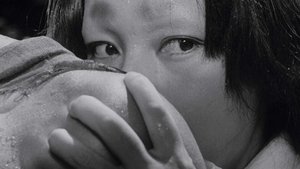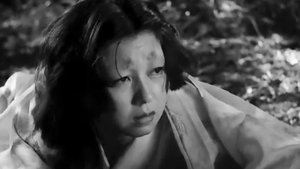Contact: [email protected]
Video Sources 0 Views
- Watch trailer
- Rashomon

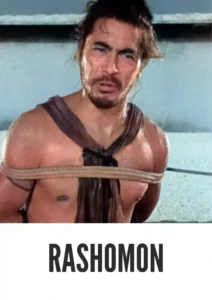
Synopsis
Table of Contents
ToggleReview: Rashomon (1950) – A Timeless Exploration of Truth and Perception

Introduction
Rashomon, released in 1950, stands as a timeless masterpiece of Japanese cinema, directed by the legendary Akira Kurosawa. This groundbreaking film explores the elusive nature of truth and the subjective nature of human perception through its innovative storytelling and captivating visuals. In this review, we will delve into the mesmerizing world of Rashomon and uncover its enduring significance in the realm of cinematic art.
Check The Full Colorized Movies List
Check Our Colorized Movies Trailer Channel
Understanding Rashomon (1950): Director, Cast, and Genre
Directed by Akira Kurosawa, Rashomon boasts a stellar cast including Toshiro Mifune as the bandit Tajomaru, Machiko Kyō as the wife, and Masayuki Mori as the husband. The film falls within the genre of psychological thriller, characterized by its exploration of the human psyche and moral ambiguity.
Exploring the World of Rashomon (1950): Plot and Characters
Set in medieval Japan, Rashomon unfolds against the backdrop of a murder trial as four witnesses provide conflicting accounts of the same event. As the narrative unfolds, viewers are drawn into a complex web of deceit, manipulation, and self-deception, where truth becomes a matter of perspective. Through its nonlinear storytelling and unreliable narrators, the film challenges viewers to question their own perceptions of reality and confront the elusive nature of truth.
The Art of Film Colorization
While Rashomon was originally filmed in black and white, its early colorized version adds a new layer of visual richness and depth to its atmospheric aesthetic. The colorization process enhances the film’s evocative visuals and captures the beauty of its period setting with stunning clarity.
Early Colored Films: A Brief History
The history of early colored films is marked by innovation and experimentation as filmmakers sought to enhance the visual appeal of their movies. From hand-tinted frames to pioneering technicolor processes, the evolution of colorization techniques transformed the cinematic landscape, offering audiences a new way to experience classic stories and imaginative worlds.
Rashomon (1950) and Its Early Colored Version
The decision to release Rashomon in a colorized format was made with the intention of immersing audiences in the atmospheric world of the film and enhancing its visual impact. While some purists may prefer the original black and white version, the early colorized edition of Rashomon adds a new dimension to its atmospheric aesthetic and captures the beauty of its period setting with breathtaking clarity.
The Debate Over Film Colorization
The debate over film colorization continues to divide audiences and industry professionals alike. While some argue that colorization breathes new life into classic films and makes them more accessible to modern audiences, others maintain that it compromises the artistic integrity of the original work. As technology advances and filmmaking techniques evolve, the debate over colorization remains a topic of ongoing discussion within the film community.
Examining Rashomon (1950) as an Early Colored Film
Viewing Rashomon in its early colorized iteration offers audiences a fresh perspective on its atmospheric visuals and nuanced storytelling. The colorization process enhances the film’s evocative cinematography and captures the beauty of its period setting with stunning clarity. As viewers grapple with the moral ambiguity of the characters and the elusive nature of truth, they are drawn into a world of mystery and intrigue that resonates with timeless relevance.
Influence and Legacy: Rashomon (1950)’s Impact on Cinema
Rashomon is widely regarded as a groundbreaking work of cinematic art that continues to inspire filmmakers and artists around the world. Its innovative storytelling techniques, moral complexity, and exploration of existential themes have left an indelible mark on the realm of cinema. As a testament to its lasting impact, Rashomon remains a timeless masterpiece that continues to captivate audiences with its timeless relevance and universal truths.
Director’s Cinematic Legacy: Beyond Rashomon (1950)
Akira Kurosawa’s directorial legacy extends far beyond Rashomon, encompassing a diverse body of work that spans multiple genres and styles. As one of the most acclaimed filmmakers in history, Kurosawa was known for his bold vision, innovative storytelling, and uncompromising artistic integrity. Rashomon stands as a testament to his talent and creativity, solidifying his reputation as one of the greatest auteurs of the 20th century.
Themes Explored in Rashomon (1950)
At its core, Rashomon explores themes of truth, perception, and the nature of humanity. Through its nonlinear narrative and unreliable narrators, the film challenges viewers to question their own perceptions of reality and confront the elusive nature of truth. As the characters grapple with their own biases and motivations, viewers are forced to reckon with the complexities of human nature and the moral ambiguity of the human condition.
Reception and Controversy Surrounding Rashomon (1950)
Upon its release, Rashomon received widespread critical acclaim for its innovative storytelling, captivating performances, and thought-provoking themes. While the decision to release the film in a colorized format sparked debate among purists, its enduring popularity has cemented its status as a timeless classic of world cinema.
Where to Watch Rashomon (1950) Online
For those eager to experience Rashomon for themselves, the film is readily available on popular streaming platforms such as Amazon Prime Video, Google Play Movies, and iTunes. Whether viewed in its original black and white format or its early colorized iteration, Rashomon offers a mesmerizing cinematic experience that is sure to captivate audiences.
FAQs About Rashomon (1950)
1. Is Rashomon based on a true story?
No, Rashomon is a fictional film that draws inspiration from two short stories by Ryūnosuke Akutagawa: “Rashomon” and “In a Grove”. While the film’s narrative may have roots in historical events and literary sources, its characters and plot are works of fiction.
2. Who starred in Rashomon?
Rashomon stars Toshiro Mifune as the bandit Tajomaru, Machiko Kyō as the wife, and Masayuki Mori as the husband. Their captivating performances bring depth and complexity to the film’s nuanced storytelling, capturing the essence of Kurosawa’s vision with remarkable skill.
3. What is the central message of Rashomon?
At its core, Rashomon explores the elusive nature of truth and the subjective nature of human perception. Through its nonlinear narrative and conflicting accounts of the same event, the film challenges viewers to question their own assumptions and confront the complexities of the human psyche.
4. Why was Rashomon released in a colorized format?
The decision to release Rashomon in a colorized format was made with the intention of enhancing the film’s visual appeal and capturing the beauty of its period setting. While some purists may prefer the original black and white version, the early colorized edition of Rashomon adds a new dimension to its atmospheric aesthetic and offers audiences a fresh perspective on this classic work of cinema.
5. What is the legacy of Rashomon?
Rashomon is widely regarded as a masterpiece of world cinema that continues to captivate audiences with its innovative storytelling, captivating performances, and thought-provoking themes. Its enduring legacy has inspired generations of filmmakers and remains a beloved favorite among fans of classic Japanese cinema.
6. Are there any sequels or remakes of Rashomon?
No, there have been no official sequels or remakes of Rashomon. However, the film’s innovative storytelling techniques and timeless themes have inspired countless reinterpretations and adaptations in various media. Nonetheless, none have captured the haunting beauty and existential brilliance of the original 1950 classic.
7. Where can I watch Rashomon online?
For those eager to experience Rashomon for themselves, the film is readily available on popular streaming platforms such as Amazon Prime Video, Google Play Movies, and iTunes. Whether viewed in its original black and white format or its early colorized iteration, Rashomon offers a mesmerizing cinematic experience that is sure to captivate audiences.
Conclusion
In conclusion, Rashomon (1950) stands as a timeless masterpiece of Japanese cinema that continues to captivate audiences with its innovative storytelling, captivating performances, and thought-provoking themes. Whether viewed in its original black and white format or its early colorized iteration, Akira Kurosawa’s visionary direction and the mesmerizing performances of the cast offer a cinematic experience that is both immersive and thought-provoking. As viewers grapple with the elusive nature of truth and the subjective nature of human perception, they are drawn into a world of mystery and intrigue that resonates with timeless relevance. With its enduring legacy and universal themes, Rashomon remains a powerful meditation on the nature of truth, perception, and the human condition that continues to captivate audiences around the world.
